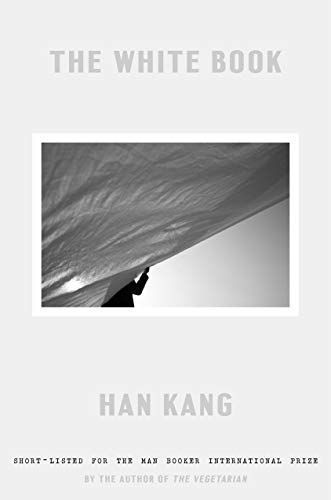
The White Book
Shortlisted for the 2018 Man Booker International Prize From Booker Prize-winner and literary phenomenon Han Kang, a lyrical and disquieting exploration of personal grief, written through the prism of the color white While on a writer's residency, a nameless narrator wanders the twin white worlds of the blank page and snowy Warsaw. THE WHITE BOOK becomes a meditation on the color white, as well as a fictional journey inspired by an older sister who died in her mother's arms, a few hours old. The narrator grapples with the tragedy that has haunted her family, an event she colors in stark white--breast milk, swaddling bands, the baby's rice cake-colored skin--and, from here, visits all that glows in her memory: from a white dog to sugar cubes. As the writer reckons with the enormity of her sister's death, Han Kang's trademark frank and chilling prose is softened by retrospection, introspection, and a deep sense of resilience and love. THE WHITE BOOK--ultimately a letter from Kang to her sister--offers powerful philosophy and personal psychology on the tenacity and fragility of the human spirit, and our attempts to graft new life from the ashes of destruction.
Reviews
biddy@silksparrow
cha@chakiiko
p.@softrosemint
adriftzoey@adriftzoey
Lilo@dearlilo
Claudine@claudrod
Andrea Hak-Kovacs@andreareads
rain/anagha@bookseoksoon
𓆨@viridiantre
Isabella @iscbella
solitones@solitones
Cait🪼@figs0up
azliana aziz@heartinidleness
moz@mozayr
dearestmoon @moonae
Valentina@v9
Gia Palamos@giapalamos
Beau@hyggeligbo
Sabrina D. @readingsofaslinky
雪 xue@snow
Alithea@alithea
Anya Azrael@anyaazrael
C@csia
Luke Jones@lukejones
Highlights
biddy@silksparrow
biddy@silksparrow
biddy@silksparrow
aywen@aywen
clara@sophierosenfeld
clara@sophierosenfeld
clara@sophierosenfeld
clara@sophierosenfeld
clara@sophierosenfeld
clara@sophierosenfeld
Mara D Alo Fonseca@maravilhosa
Page 79
Claudine@claudrod
Page 21
Claudine@claudrod
Page 7
rain/anagha@bookseoksoon
rain/anagha@bookseoksoon
rain/anagha@bookseoksoon
rain/anagha@bookseoksoon
rain/anagha@bookseoksoon
rain/anagha@bookseoksoon
rain/anagha@bookseoksoon
rain/anagha@bookseoksoon
rain/anagha@bookseoksoon
rain/anagha@bookseoksoon
rain/anagha@bookseoksoon